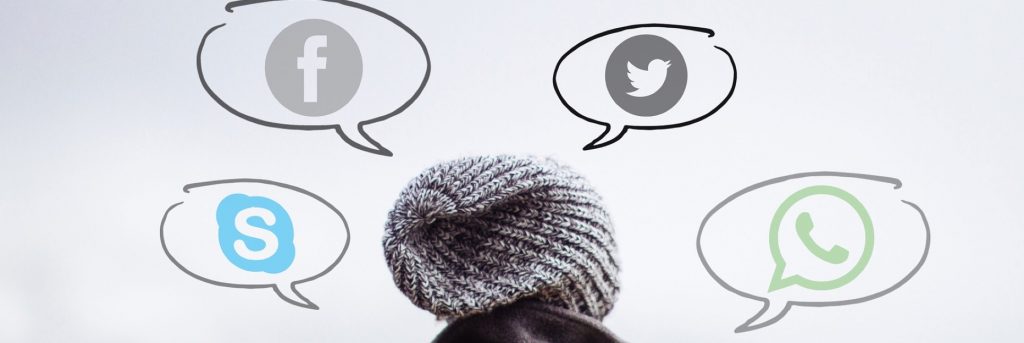Do Social Networks Affect Our Brains? Two Tuck Professors and a UCLA Professor Research the Truth

We’re you surprised by the results of the 2016 election? According to Tuck Associate Professor of Business Administration Adam Kleinbaum and his research partners—Dartmouth Associate Professor of Psychological and Brain Sciences Thalia Wheatley and UCLA Social Psychology Assistant Professor Carolyn Parkinson—you can blame social media.
In their latest paper, “Spontaneous Neural Encoding of Social Network Position,” the group reviewed how surrounding ourselves with a close-knit group of like minds, such as on social media, can have real-world consequences in politics, business, and more. According to their paper, there’s something called the “naked emperor effect” that occurs when we fall into the trap of only relying on information from trusted networks. The phrase, taken from The Emperor’s New Clothes, explains the tendency of people to place themselves in a bubble to exchange information that no longer holds true.
For their research project, Kleinbaum and Wheatley set out to answer the question, “Do friends see the world in the same way? And if so, what are the implications of that?” To gain insight into the question—including how social networks interact with the physical structure of the brain—they asked 42 first-year Tuck students to watch a series of videos while hooked up to an fMRI machine. They found some interesting results.
According to the scans, the more similar two people’s neural responses the more likely that they would be friends. From this, the authors’ surmised that people who have similar world views are more likely to be friends and that spending time together causes “neuroplastic convergence,” or a physical change in the brain to react similarly. Basically, the human brain can and will evolve to recognize one’s place in a group.
The implications of this research can have some profound effects for companies. Since most people tend to interact with like-minded people and to increase cohesion with their network overtime, this can create a false sense of security. The key is to help your employees be exposed to different ways of thinking.
“Executives worry a lot about being able to anticipate the next big thing, or being disrupted if they fail to anticipate the next big thing,” Kleinbaum explained. “Being exposed to different ways of thinking helps us break out of our thought worlds and imagine possibilities we otherwise might never have thought of.”
To read a more in-depth review of the research paper visit the news release on the Tuck School website. Or you can find the full paper in the April issues of Nature Human Behavior.
